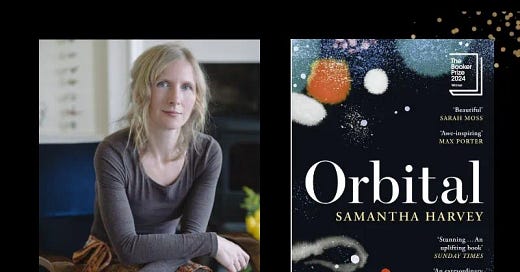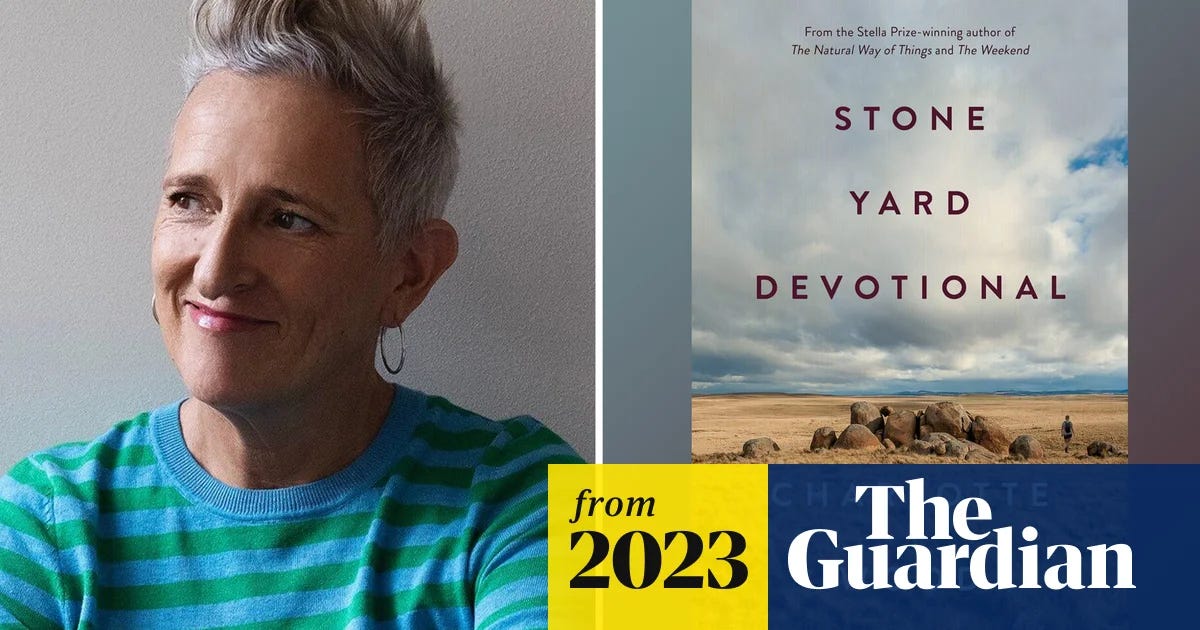It is said that anything that is lost can be found again, except time, and time is all the characters have in both these stunning Booker finalist novels: ORBITAL by Britain’s Samantha Harvey, and STONE YARD DEVOTIONAL, by Australia’s Charlotte Wood. One takes place in space, where all things tangible are trillions of miles in the distance, and the other firmly grounded in faith.
The seconds dissolve and mean less and less. Time shrinks to a dot on a field of blank white, specific and senseless, then bloats without edges and loses its shape. [Orbital]
There may be a word in another language for what brought me to this place; to describe my particular kind of despair at that time. But I’ve never heard a word to express what I felt and what my body knew, which was that I had a need, an animal need to find a place I had never been but which was still, in some undeniable way, my home. [Stone Yard Devotional]
Both novels are stream of conscious narratives and both born of self-reflection during a respite from the more ordinary obligations of day-to-day life. Both an examination of self within the context of humanity on earth, or across a vast universe, the other on what humanity means in an era of despair and faithlessness.
Both rich with detail and memory, and wonder.
…she feels in space as though her body is young again and there are no aches and pains, except for the space headaches they all get – even those are rare for her. Something about having your weight taken off you, having no pressure on your joints and no pressure on your mind – no choices. [Orbital]
And then, there are the rodents. Both novels feature an infestation or manifestation wrought by mice – creatures humans use and abuse in the hope of discovering new ways of healing, who can be horribly destructive when left to their own resources.
These untouched mice in groups one to three seem daily to be wasting away. In the one week since they arrived on the supply vehicle it’s as though their souls have collapsed. Their black eyes bulge in shrinking bodies, their feet are large and useless, giving them the look for something aberrant and unevolved. [Orbital]
They do not tell you the mice will eat anything. Here they have done away with the coiled plastic dishwasher pipes and the oven insulation, the electrical cord for the washing machine. All those tasks are ow to be done by hand; there’s no point replacing parts until the plague is over. [Stone Yard Devotional]
ORBITAL won the Booker prize this year largely, I believe, for its originality as well as the exquisite prose, but both exemplify contemporary post-modern storytelling: alternating voices of cosmonauts from different countries and cultures view the earth below, and their own destiny, through an individual lens, or the wanderings of the mind at a monastic retreat in rural Australia. And all these characters find themselves, not surprisingly, contemplating death as the essence of life.
My friends who grew up in cities found it grossly morbid, to bury a body rather than burn it. I don’t know why. They would shudder, speaking of worms and decay, appalled in some existential way. Perhaps it was the slowness of decomposition they found so horrifying. We don’t want to think of our bodies gradually breaking down, our tissue leaking softly into earth. We want death done with, vanished like smoke in the air. [Stone Yard Devotional]
If you are looking for a good old-fashioned tale – linear, plot-driven fiction with a gripping end – these novels are not for you. If you relish the subtlety of storytelling with its lovely language and personal introspection, and the rambling mind that reveals profound truths, these are for you. Cheers.





